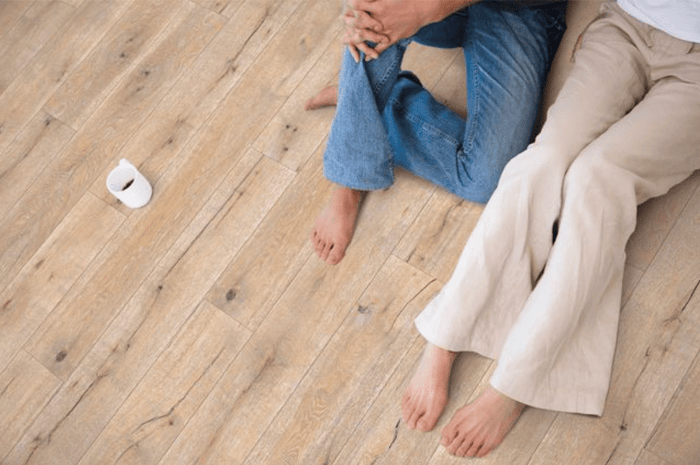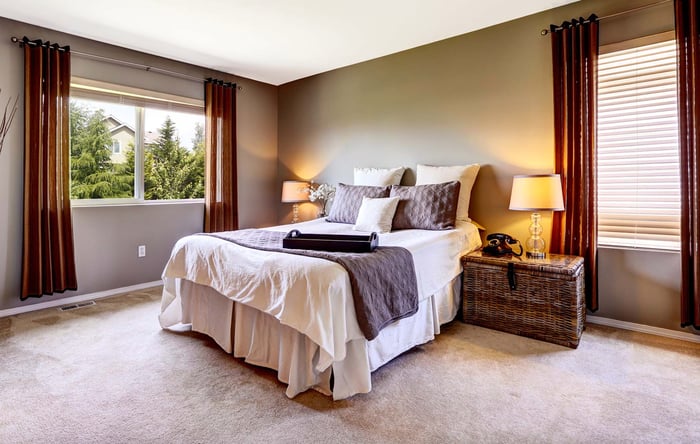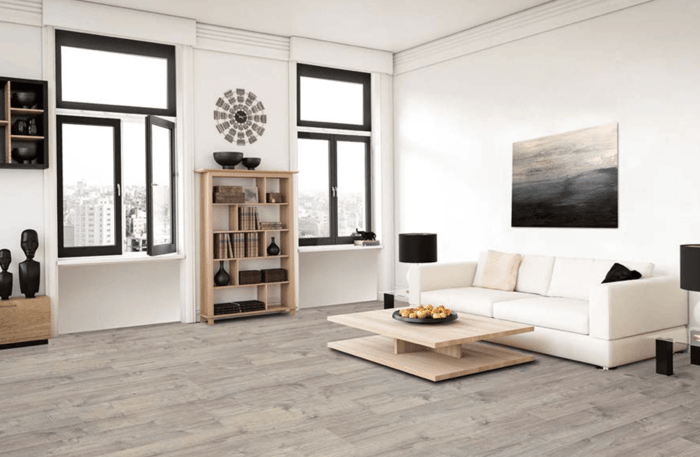When it comes to your basement, choosing the right flooring is crucial. Basements have unique challenges that other areas of the house don't face—think moisture, lack of sunlight, and varying temperatures. The floor you pick needs to be durable, moisture-resistant, and comfortable underfoot. You want something that can handle all of this while looking great, right? Lucky for you, there are several fantastic flooring options specifically suited for basements. Let’s dive into the top choices: luxury vinyl, sheet vinyl, rubber, laminate, carpet, and tile.
Luxury vinyl flooring: resilient and stylish
Luxury vinyl flooring, often referred to as luxury vinyl plank (LVP) or luxury vinyl tile (LVT), is one of the top choices for basements—and it’s easy to see why. This floor is designed to mimic the look of hardwood or stone, but it comes with the added benefit of being waterproof.
Basements are prone to moisture issues, and luxury vinyl can handle that like a champ. Not only does it resist water, but it also stands up to scratches and dents. Whether you’re using the space as a game room, home gym, or additional living area, luxury vinyl can take the daily wear and tear without breaking a sweat.
Plus, it's soft underfoot, making it a comfortable option if you plan to spend a lot of time in your basement. And here’s the kicker—it’s budget-friendly while giving you that high-end look. So, if you’re looking for a stylish, practical solution that won’t stretch your budget, luxury vinyl could be your go-to option.
Sheet vinyl flooring: seamless and waterproof
If you want a budget-friendly, moisture-resistant option, sheet vinyl is another product to consider. Like luxury vinyl, sheet vinyl handles water without issues, making it perfect for basements that tend to be damp. The difference? Vinyl sheet comes in large rolls, which means fewer seams and less chance of water seeping through.
This floor can mimic various materials, including wood and stone, giving you the flexibility to design your space without breaking the bank. And because it’s easy to install, vinyl sheet is a great DIY project if you’re feeling ambitious. It's also low maintenance—just sweep and mop when needed.
One thing to keep in mind: because sheet vinyl is thinner than luxury vinyl plank, it can feel colder underfoot. If your basement gets chilly, consider adding a rug or using an underlayment for extra insulation.
Rubber flooring: durable and soft
Rubber flooring might not be the first thing that comes to mind when you think of basement flooring, but it’s an underrated option, especially if you’re turning your basement into a workout space or playroom. Rubber is incredibly durable and shock-absorbent, making it ideal for areas where you expect a lot of foot traffic or heavy equipment.
The best part? Rubber is naturally water-resistant. It won’t warp or damage from moisture, and its non-slip surface provides extra safety. If you're worried about basement floods, rubber floors can take the hit without major damage.
Rubber tiles are easy to install—most of them simply snap together—and they're soft underfoot, so if you're doing burpees in the basement gym or your kids are running around, it’s easy on the knees and joints. Rubber floors are available in different colors and textures, so you can personalize your space to fit your style. The only downside? Rubber can be pricier than other options like vinyl or laminate. But rubber is well worth the investment if durability and safety are top priorities.
Laminate flooring: stylish and affordable
Laminate flooring is often considered a good alternative to hardwood. It offers the same wood-look aesthetic but at a fraction of the price. However, when it comes to basements, there’s a caveat: laminate is not waterproof. It’s water-resistant, which means it can handle a small spill or two, but laminate might not be the best option if your basement is prone to flooding or high humidity.
That being said, there are newer laminate products on the market with enhanced water resistance. If you really love the look of wood but don’t want to deal with the hassle of real hardwood in the basement, these options might be worth exploring.
One benefit of laminate flooring is that it’s durable and scratch-resistant, making it ideal for basements that serve as multi-purpose spaces. It’s also relatively easy to install—many options are floating floors, which means they click together without the need for nails or glue.
Carpet: warmth and comfort
When you think of basements, carpet might not be the first choice that comes to mind, especially with all the moisture concerns. But let’s be real: basements can get cold, and carpet is one of the best options to add warmth and coziness to the space. If you’re turning your basement into a living room, home theater, or bedroom, carpet offers unmatched comfort underfoot.
The key here is to choose the right type of carpet. Opt for synthetic fibers like nylon or polyester, which are more resistant to mold and mildew compared to natural fibers like wool. Also, pair your carpet with a moisture barrier pad to prevent moisture from seeping through the floor and causing damage.
While carpet isn't waterproof, it can still be a good option for drier basements or basements with proper insulation and dehumidification systems in place. It’s cozy and quiet and provides that homey feel that other floor types may lack.
Tile flooring: timeless and durable
Tile flooring, especially ceramic and porcelain tiles, is one of the most durable options for basements. Tiles are naturally resistant to water, which makes them a solid choice for basements that may deal with moisture or even occasional flooding. Plus, if you’re going for a sleek, modern look, tile can give your basement that upscale, polished finish.
Porcelain tiles, in particular, are denser and less porous than ceramic tiles, making them even better for moisture-prone areas. They also come in various styles, from wood-look tiles to natural stone designs, giving you endless aesthetic options.
However, tile has its downsides. It can be cold underfoot, which is not ideal if your basement is already chilly. You can combat this by installing radiant heating beneath the tiles, though that adds to the overall cost. Additionally, tile installation can be labor-intensive, and if you’re planning on DIY, it might be a more challenging project than other floor options.
Visit JP Flooring for your basement floors and more
When it comes to picking the best flooring for your basement, the most important factors to consider are moisture resistance, durability, and comfort. Each option has its pros and cons, and the right choice depends on how you plan to use the space. If you’re creating a multi-functional living area, luxury vinyl or carpet might be your best bet. If the space is more utilitarian, like a gym or storage area, rubber or tile could serve you well.
Don’t forget to take into account your basement’s moisture levels. Installing a vapor barrier or proper dehumidification system is key to ensuring whatever floor you choose lasts for years to come.
Ultimately, your basement flooring should suit your lifestyle while withstanding the unique challenges basements often present. Whether you choose the sleek look of tile, the warmth of carpet, or the resilience of vinyl, you'll be making a decision that enhances your home’s comfort and functionality. JP Flooring is your go-to source for your flooring needs. Call or stop by one of our showrooms today!




